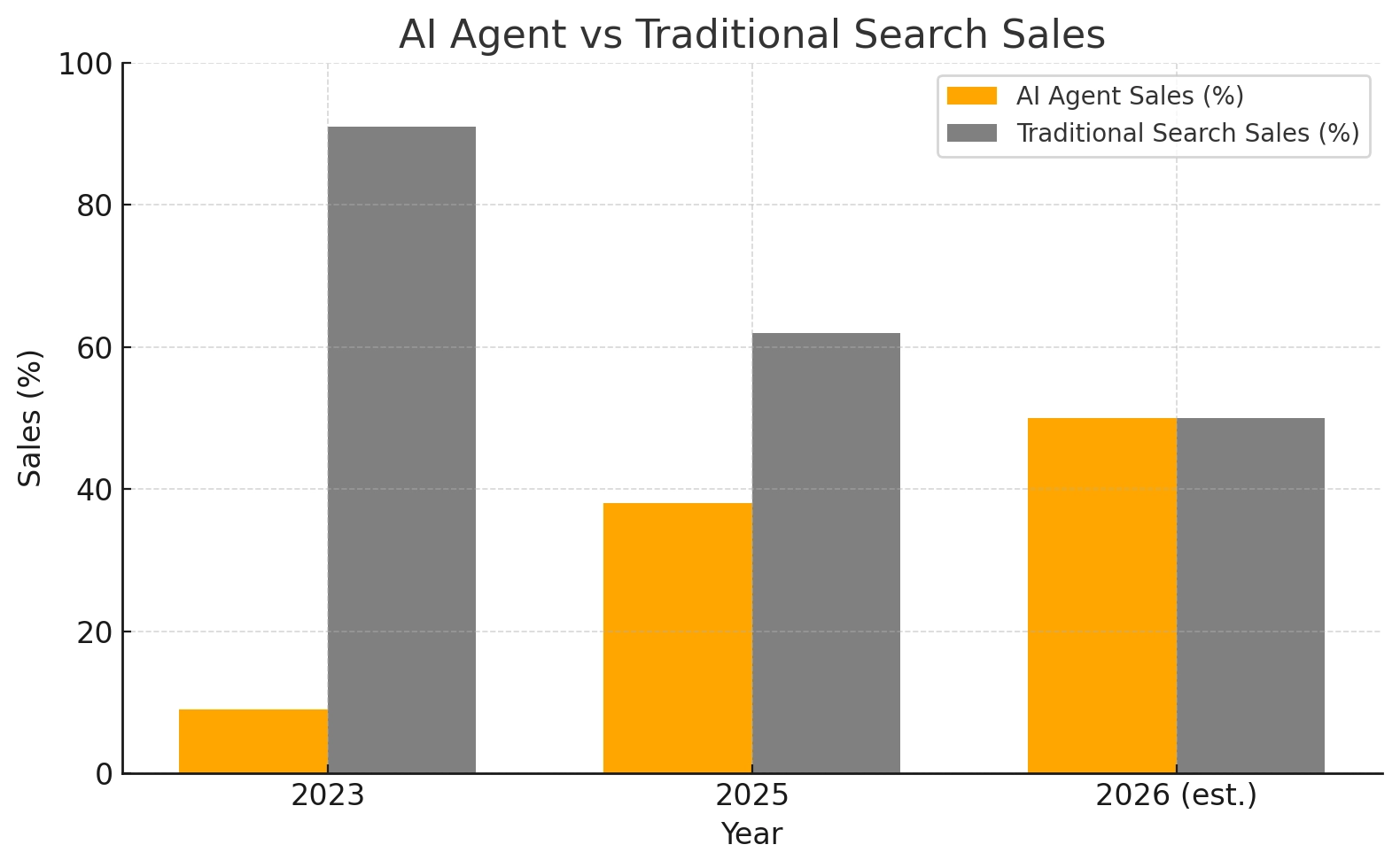What Are AI Shopping Agents?
AI shopping agents are intelligent virtual assistants that make purchasing decisions on behalf of users. Instead of just displaying search results, they compare, select, and even buy products autonomously—based on data, rules, and brand performance. Think of them as your customer’s AI-powered personal shopper.

These agents are no longer a futuristic concept—they’re live, shaping conversions on platforms like Amazon and Google Shopping. The Buy for Me feature on Amazon is just the beginning: users can now ask the app to handle everything—from finding the best option to placing the order.
“The age of algorithmic loyalty is here. Your brand won’t be chosen by people—it’ll be chosen by machines.”
Why Brands Can’t Ignore AI Shopping Agents
AI shopping agents don’t just optimize—they decide. They don’t rely on ads or brand storytelling. They care about data quality, MAP compliance, delivery performance, and user behavior.
If your product listing lacks the right structure, pricing, or reviews, it may be invisible to these agents—even if it’s perfect for a human shopper.
Key risks for brands:
- Losing Buy Box/Featured Offer due to pricing violations
- Being bypassed due to poor backend data
- Getting out-ranked by AI-optimized competitors
- Missed conversions as agents default to “preferred” sellers
AI shopping agents are turning e-commerce into machine-versus-machine—where your tech stack, not just your product, determines your success.
How Do AI Shopping Agents Work?
These agents rely on:
- Natural Language Processing (NLP): Understand what users say or type
- Product Graphs & Pricing Engines: Compare and rank products
- Behavioral Signals: Learn from what users buy, skip, or return
- Marketplace APIs: Interact with live listings, stock, and performance data
Here’s a breakdown of how a request like “Find me a high-rated moisturizer under $25 that ships by tomorrow” is processed:
Parse intent:
Understand product type, price limit, delivery need
Filter products:
Remove listings with bad ratings or delayed shipping
Rank results
Prioritize MAP-compliant listings with strong reviews
Recommend or buy
Suggest top product or auto-purchase if permitted
Trend: AI Agents vs Traditional Search

How AI Shopping Agents Will Transform Retail Forever
AI shopping agents are not just a new feature—they’re a structural shift in how commerce operates. Unlike search engines, which offer options, these agents make decisions. They analyze product data, price history, reviews, fulfillment speed, and even return behavior to determine which products are worthy of a recommendation—or a purchase.
This means brands no longer compete for attention from human buyers, but for selection by AI. Your visibility depends on how well your product feeds the algorithm: clean data, stable pricing, MAP enforcement, strong fulfillment, and compliant listings.
Retail is no longer ruled by keywords or ads. It’s ruled by algorithms trained to optimize for user satisfaction and trust. If your brand isn’t built for AI agents, it risks being bypassed completely—no matter how good your product is.
How Brands Can Stay Competitive
To stay relevant in an AI-first shopping environment, brands need to:
- Maintain structured, complete, and clean listing data
- Monitor and enforce MAP pricing to avoid suppression
- Track unauthorized sellers that skew pricing or delivery
- Improve product reviews and seller performance
- Adapt listings for both humans and machines
AI Shopping Agents and Your Marketplace Strategy
If you sell on Amazon, Walmart, or any other marketplace, AI shopping agents will increasingly control how your product is found—or not.
Let’s break it down:
Final Thought
The new battlefield in e-commerce isn’t visibility—it’s compatibility.
If your brand isn’t built for AI, it’s built to be ignored.
Thank you for reading our post, “AI Shopping Agents: The Smart Revolution in E-commerce” We hope you found it helpful.
Useful Information to Clear Up Your Inquiries
What are AI shopping agents?
AI-powered assistants that analyze data to recommend or purchase products without human input.
Where are AI agents being used today?
Amazon’s “Buy for Me,” Google Shopping, and emerging voice/assistant tools.
Can I influence how AI agents rank my brand?
Yes. Structured data, MAP pricing, performance metrics, and backend optimization are key.
Will AI agents replace traditional e-commerce search?
Not entirely—but they’re already reshaping how consumers decide what to buy.
What happens if my product isn’t optimized?
AI agents may skip your listing, even if it’s perfect for human buyers.





